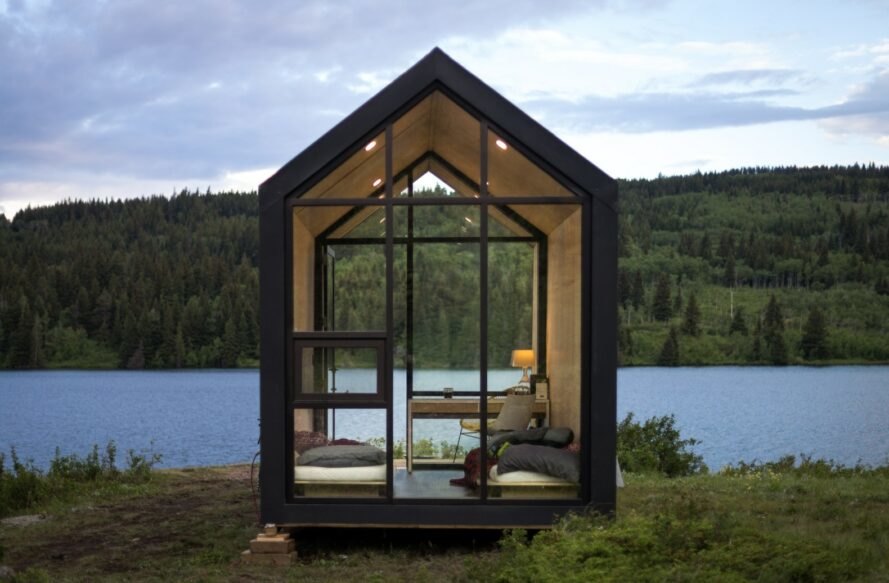What if you had no electricity bills - ever again? Thanks to advances in technology, living off-grid is no longer just for the ultra-wealthy or hardcore survivalists. With solar panels and batteries becoming more affordable, the dream of energy independence is now within reach for many —including cottage owners looking to escape the grip of rising utility costs.
A recent study I co-authored with energy researcher Seyyed Ali Sadat shows that for many families, cutting ties with the grid isn’t just possible—it actually makes financial sense. But what does this mean for the future of energy, and is going off-grid really the best solution for everyone?
How Did We Get Here?
Back in the early 2000s, solar power was expensive. The industry aimed to bring costs below $3 per watt, making solar electricity competitive even without subsidies. Fast forward to today, and solar panel prices have plummeted to well under $1 per watt, making renewable energy more accessible than ever.
By 2011, we found that solar power had reached grid parity in the U.S. and Canada—meaning the cost of generating your own electricity matched what you’d pay your local utility. With net metering, homeowners with solar panels could sell excess power back to the grid during the day and draw electricity at night, effectively reducing their bills to zero.
Why Are Utilities Worried?
While solar power has been a win for homeowners, electric companies haven’t always been thrilled. The more customers produce their own power, the less revenue utilities make. Some progressive energy providers embraced solar by funding installations or even renting rooftops for panel use. Others, however, took a different approach—weakening net metering or increasing unavoidable charges to make solar less attractive.
As a result, many solar customers are now exploring a different option: going completely off-grid. With battery prices dropping more than 50% in just the past year, homeowners are realizing they can cut the cord entirely—and potentially save thousands in the process.
Off-Grid Living: The Numbers
For many families, the math of going off-grid makes sense. Consider a household in San Diego. With an upfront investment of $20,000 for an off-grid system (including solar panels, batteries, and a backup generator), they could cut their electricity costs by 45% compared to staying on the grid.
The system would pay for itself in just six years. Even factoring in battery replacements, they'd break even again by year eight. Over the system’s lifetime, they could save more than $40,000 on electricity. And as battery costs continue to fall, the financial benefits of off-grid living are only getting stronger. It's good to start early so you can reap the rewards over time.
The Downsides of Leaving the Grid
While energy independence sounds great, mass grid defection could have unintended consequences.
-
Higher costs for those left behind – If too many people disconnect, utilities will have to raise rates on those who remain—often lower-income households who can’t afford to go off-grid.
-
Environmental concerns – Most off-grid systems rely on diesel generators as backup power. In some cases, these generators could cause more pollution than simply staying on the grid.
The Political Climate and Energy Independence
The shift toward off-grid living isn’t just about technology—it’s also tied to government policies on energy.
In the U.S., the Trump administration rolled back environmental regulations and promoted fossil fuels over renewables. Meanwhile, in Canada, Doug Ford’s Ontario government canceled green energy contracts and cut renewable programs, increasing reliance on natural gas.
As a result, many homeowners see off-grid living as a way to take control of their energy future rather than relying on politicians and shifting policies. Across North America, communities are building self-sufficient energy systems using solar, wind, and battery storage—choosing resilience over uncertainty.
What’s the Best Path Forward?
The key to a sustainable energy future isn’t about everyone abandoning the grid—it’s about making the grid work better for everyone. Instead of discouraging solar, utilities should embrace it by offering fair net metering policies and investing in smart-grid technology that benefits both consumers and providers.
At the same time, homeowners need to consider whether full grid defection or a hybrid approach (grid-tied solar with battery backup) makes the most sense for their situation. Going off-grid can provide freedom, but it also comes with responsibilities—like maintaining your own energy system and managing backup power needs.
Final Thoughts
With solar and battery prices at historic lows, more people are taking control of their electricity than ever before. Whether you're looking to save money, gain energy independence, or reduce your environmental footprint, the off-grid revolution is no longer a distant dream—it’s a very real possibility. And even easier at the cottage because your dependency is not as great.

